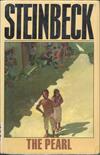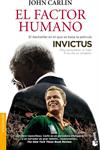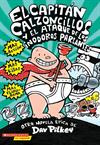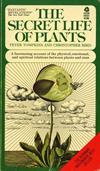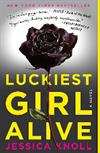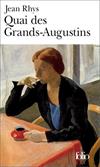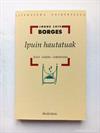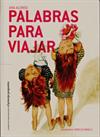
Pham Xuan An - A General of the Secret Service
1 journaler for this copy...
 Bought at the Temple of Literature, Hanoi. (This was once used as a book crossing point but it hadn't occurred to me to leave a book there. Foolish me.)
Bought at the Temple of Literature, Hanoi. (This was once used as a book crossing point but it hadn't occurred to me to leave a book there. Foolish me.)I have chosen this picture which is not the best I have of the Temple of Literature, becauseit is looking towards the corner of the temple where the bookshop is.
The book is written in a rather stilted way, as required by a book singing the praises of a hero of the American War.
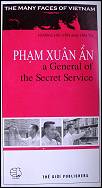 A very bitty book. I would guess that its short 45 chapters were originally newspaper articles.
A very bitty book. I would guess that its short 45 chapters were originally newspaper articles.It is written by two VN journalists who have interviewed Pham Xuan An and others involved in the same intelligence network.
An has not been exactly forthcoming in his interviews and is keeping most of what he knows secret, it is conjectured that this is out of respect for all the South Regime supporters who he fooled.
There are a few insights and points of interest, particularly in the first chapters. The later chapters tend to rattle off a lot of names, who I imagine are now well known as post-reunification political leaders. I certainly recognise some of the names as being adopted as street names in Ho Chi Minh City.
The book is written in reverential tones, on the assumption which may suit loyal VN readers, but is unsatisfactory for foreigners who don't take for granted that An and his masters were great men.
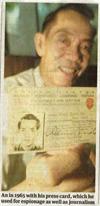 Pham Xuan An
Pham Xuan An Hanoi spy and Time journalist who was loved by both sides
Christopher Reed
Wednesday October 25, 2006
The Guardian
The secret double life of Pham Xuan An, a renowned Time magazine journalist and valued wartime spy for Hanoi, could have come from Graham Greene's book about the Vietnam conflict, The Quiet American. But when An, who has died aged 79, reviewed the 1958 film of the novel, he declared that it should not be shown in his country.
Perhaps even then, as an apprentice reporter in California, An was disturbed by the ambiguities and ironies the story raised. Certainly he was always torn between his affection for the US and love of his native land. When, after decades, his secret finally emerged, even the Americans called him in a New Yorker profile, "The spy who loved us".
An, who has died of emphysema in Ho Chi Minh City (formerly Saigon), never repudiated it. The friends he made as a correspondent for 10 years with Time in Saigon included CBS reporter Morley Safer, author David Halberstam, and fellow Time colleague Robert Sam Anson, and they continued to admire him. Anson, who was captured but released through An's intervention, kept his photo on his desk. "An's life broached fundamental questions," said Halberstam. "What is patriotism? What is the truth? Who are you when you tell these truths?"
An kept mostly silent about these questions, but he was otherwise gregarious and chatty. This made him popular among foreign correspondents with whom he mingled in Saigon cafes, smoking cigarettes and swapping insider gossip. At night he photographed secret documents and typed information gained from off-the-record US army briefings, passing it all to the Viet Cong through their elaborate tunnel system.
As a teenager from a prosperous South Vietnamese family - his father was a surveyor - An became a nationalist guerrilla in 1945, abandoning high school to do so. He joined the Viet Minh force opposing the French, who had been allowed to return as Indochina's colonial masters, and experienced jungle skirmishes. Later, he held various posts in Saigon while still an activist, until the French were defeated in 1954.
The year before, the Viet Minh had found him a job as a censor at the post office, and via this he obtained work with Colonel Edward Lansdale, then with Saigon's US "military mission", but really a CIA secret adviser to anti-communist south Vietnam. With Lansdale as mentor, An studied the teachings of Sherman Kent, a Yale professor and author of a book describing espionage as a "reportorial" task. An's spy schooling had begun.
Next he moved to southern California and enrolled at a junior college where he contributed to its student newspaper, the Barnacle. It was here that he reviewed the Greene film. Then he went north to the state capital, and now in his early 30s, became a trainee on the Sacramento Bee newspaper. There, he recalled later, for the only time in his life he felt carefree.
His two years in the US were partly financed by the Asia Foundation, later revealed as a CIA front. Thus equipped, in 1959 An returned to Saigon fluent in English and trained in journalism - and espionage - by the Americans. The Viet Cong were replacing his old guerrilla comrades, and he needed a job.
He joined the Vietnamese news agency, which was riddled with spies, but An insisted they write proper articles, and they did. He moved to Reuters in 1960 and did such fine work that five years later the Time bureau chief, Frank McCulloch, hired him. An stayed with the magazine until the last Americans evacuated Saigon in 1975. Even then he kept filing reports until the line went dead as the North Vietnamese military seized the capital.
McCulloch was another journalist who kept his admiration for An, a phenomenon partly explained by An's own analysis of spying and reporting. "Their food is information, documents," he said later. "Just like birds, one has to keep feeding them so they sing."
An's information from US and South Vietnamese military sources provided Time with material similar to that which he gave his communist employers. He never invented anything and always insisted that nobody was ever killed as a direct result of his activities.
But at the war's end An's friendliness towards the Americans caused his communist masters to enforce his "re-education", although they eventually promoted him to army general. However, he was not permitted to visit America after his secret came out in the late 80s. His final verdict on the US was prophetic. "They were so confident that military might would win the war," he said, "they never bothered to learn whom they were fighting."
He is survived by his wife and four children.
· Pham Xuan An, journalist and spy, born September 12 1927; died September 20 2006
